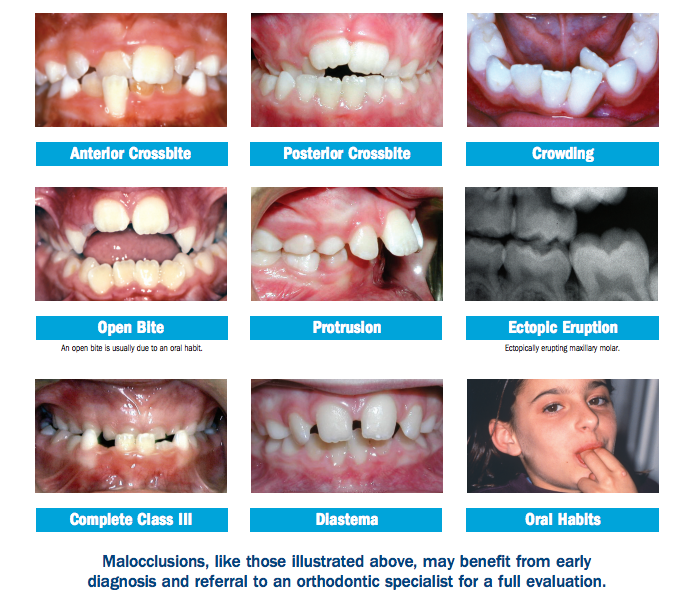The Ultimate Guide To Causey Orthodontics
The Ultimate Guide To Causey Orthodontics
Blog Article
The Only Guide for Causey Orthodontics
Table of ContentsSome Known Questions About Causey Orthodontics.The Greatest Guide To Causey OrthodonticsThe Greatest Guide To Causey OrthodonticsThings about Causey Orthodontics3 Simple Techniques For Causey OrthodonticsHow Causey Orthodontics can Save You Time, Stress, and Money.The Facts About Causey Orthodontics Revealed
What is the difference between a dental professional and an orthodontist? All dentists, including orthodontists, deal with the teeth, gum tissues, jaw and nerves.
You can think of both physicians that treat gum and teeth troubles. The major difference is that becoming an orthodontist calls for a specific specialty in dealing with the imbalance of the teeth and jaw.
Causey Orthodontics Fundamentals Explained
An orthodontist is a dental practitioner that has gone through training to specialize in the diagnosis, avoidance and treatment of irregularities in the jaw and teeth. Their training includes fixing these existing problems. They can likewise recognize potential troubles in teeth placement that might establish when conditions are left neglected. Orthodontists can help people of any ages.
This consists of all the necessary education and learning to end up being a basic dental professional. According to the American Trainee Dental Association (ASDA), it indicates you will certainly require to have either a Doctor of Medicine in Dental Care (DMD) or a Medical Professional of Oral Surgery (DDS). In other words, orthodontists need to complete oral college and afterwards get an orthodontics specialized education.
Some orthodontists additionally get their masters in craniofacial biology. Causey Orthodontics (https://companylistingnyc.com/listings/causey-orthodontics-2/). Many oral institutions give restricted orthopedic training and direction, which is why general dentists need to go to orthodontic school after graduation. Orthodontic residency programs provide extensive training for this kind of oral specialization. These programs concentrate on two details locations or self-controls: Dentofacial Orthopedics: This research concentrates on leading teeth and jaw advancement.
9 Easy Facts About Causey Orthodontics Shown

 These consist of apparatus such as braces, retainers and Invisalign. So, what does an orthodontist do, and what do they concentrate on? The overall goal of an orthodontist is to enhance a person's bite. Not every person is born with straight teeth, and an orthodontist will make certain that clients obtain uniformly spaced straight teeth.
These consist of apparatus such as braces, retainers and Invisalign. So, what does an orthodontist do, and what do they concentrate on? The overall goal of an orthodontist is to enhance a person's bite. Not every person is born with straight teeth, and an orthodontist will make certain that clients obtain uniformly spaced straight teeth.
Causey Orthodontics Fundamentals Explained
The American Association of Orthodontists recommends your first check up by age 7. You'll need to see your orthodontist if you have an imbalance in your teeth, also known as malocclusion. Also, if you discover irregular bite patterns, a somewhat irregular jaw, or when your teeth are overcrowded, you will likely need orthodontic treatment.
In enhancement, we use flexible therapy timetables, versatile settlement alternatives and an enjoyable, enjoyable experience.
An orthodontist is a dental practitioner educated to detect, avoid, and deal with teeth and jaw abnormalities. Orthodontists work with individuals of all ages, from children to adults (https://replit.com/@causeyorthodga).
Causey Orthodontics - Truths
Malocclusion, or misaligned teeth, can lead to oral concerns, including dental cavity, periodontal condition, and hard or uncomfortable eating. But not everybody is birthed with straight teeth. If you have a poor bite or big spaces between your teeth, you may desire to consult a dental expert focusing on orthodontic care.
(Image Debt: DigitalVision/Getty Images) Orthodontists utilize repaired and detachable oral gadgets, like braces, retainers, and bands, to change the placement of teeth in your mouth. Orthodontic therapy is for oral irregularities, including: Jagged teethBite issues, like an overbite or an underbiteCrowded teeth or teeth that are also much apartJaw misalignmentThe objective of orthodontic treatment is to enhance your bite.
Little Known Facts About Causey Orthodontics.

, yet not all dentists are orthodontists. They concentrate on 2 areas: Exactly how to appropriately and securely move teeth Just how to correctly guide growth in the teeth, jaw, and faceOnce an orthodontist has actually completed training, they have the choice to end up being board licensed.
Malocclusion leads to tooth congestion, a misshapen jaw, or uneven bite patterns. Malocclusion is usually treated with: Your orthodontist attaches metal, ceramic, or plastic square bonds to your teeth.
The Causey Orthodontics Ideas
If you have only minor malocclusion, you may have the ability to make use of clear braces, called aligners, as opposed to conventional dental braces. Some people require a headgear to assist relocate teeth right into line with stress from outside the mouth. After braces or aligners, you'll need to use a retainer. A retainer is a custom device that keeps your teeth in position.
Report this page